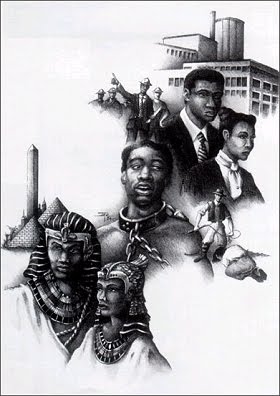
TV
Breaking the silence in the Congo
HBO
"The Greatest Silence: Rape in the Congo" looks at the sexual violence done to the women of the eastern provinces of the Democratic Republic of Congo.
Documentarian Lisa Jackson takes a perplexing look at the violent fates of women and girls in war-torn provinces.
By Robert Lloyd, Times Television Critic April 8, 2008
Harrowing and heart-rending and maddening and confounding, Lisa F. Jackson's documentary "The Greatest Silence: Rape in the Congo" looks at the sexual violence done to the women of the eastern provinces of the Democratic Republic of Congo over the course of the last decade -- the period, more or less, of the Second Congo War, which, notwithstanding peace treaties in 2003 and January of this year, seems to be rumbling on. Jackson, whose film won a Special Jury Prize at Sundance and airs tonight on HBO, was herself the victim of a gang rape in Washington, D.C., at age 25, and there is a sense of mission here; it's personal, though not in any way that makes it all about her. Unfunded, Jackson traveled to the DRC, formerly known as Zaire, on frequent-flier miles and into the bush with U.N. peacekeepers (whose hold on the peace is tenuous) to meet the victims of this ongoing monstrosity -- as many as 200,000 women and girls raped (and more) in a conflict generally regarded as the bloodiest since World War II.
She told them of her own rape, "hoping that if I told a woman my story she would break the silence surrounding hers." ("They asked about the war that was happening in my country.") She also talked to rapists -- Congolese soldiers, as it happens, who are ostensibly there to protect the women they've attacked from the foreign militias responsible for the worst atrocities of this multi-party war but who believe that rape is a mystical component to their success on the battlefield. (And there is also male talk of "needs.") A country the size of Western Europe, the DRC is rich in gold, silver, diamonds, oil, uranium and, not least, coltan, a mineral used in the manufacture of cellphones and laptop computers. The war has provided cover for Rwandan, Ugandan and Burundi militias to steal coltan -- perhaps a million dollars' worth a day; indeed, it's suggested that it's the reason for the war. (Think about that the next time you needlessly upgrade your mobile phone.) There is ample room, physically and psychologically, for the unaffected to ignore the afflicted, and Congolese society has traditionally made second-class citizens of women. Government is slow, even loath, to act; perpetrators who are caught easily bribe their way out of custody. It is a difficult thing to watch, but there's no arguing with it.
The documentary brings you close to its subject, and though its main point is unwavering -- women are being brutalized in the most unspeakable ways in eastern Congo -- its effect is increasingly complex. Jackson does a good job of capturing the paradoxical beauty of the setting, and she has structured her film so that even as it grows more horrible, hope glimmers. We meet Major Honorine Munyole, "eastern Congo's one-woman Special Victims Unit" ("I myself am the sex-crimes police, and I'm also the child protection police"); Dr. Denis Mukwege of the Panzi Hospital, who does what he can to repair broken bodies; and Jackson's gentle U.N. liaison Bernard Kalume, at home with a loving family, perilously close to the Rwandan border. They are beating against a great tide, but they press on.It's difficult to know what a film like this can accomplish, though it's necessary that such films be made. In 1960, Edward R. Murrow closed the TV documentary "Harvest of Shame," about the ill treatment of American migrant workers, saying, "The people you have seen have the strength to harvest your fruit and vegetables. They do not have the strength to influence legislation. Maybe we do."One woman seen in "The Greatest Silence" hopes that with Jackson's film, "our complaints will be heard at a higher level . . . and we will get some help."Good night, and good luck.



















1 comment:
The rape of women and girls is only the tip of the suffering and death in the Democratic Republic of the Congo. Since 1998, 5.4 million people have died unnecessarily due to preventable and treatable diseases.
The International Rescue Committee (IRC) says it is the "world deadliest crisis" since World War II. They estimated less than ten percent of the deaths were due to armed violence.
Congo is the "forgotten war". There is more people displaced, dying and suffering than any other current crisis in the news today.
It is VERY SAD to say, these unfortunate rape victims are the lucky ones because they survived. Thousands of children and women died each and every month in the Congo due to malaria, diarrhea, pneumonia and malnutrition.
Woody Collins
Ending Extreme Poverty in the Congo
http://www.EndingExtremePoverty.org
Post a Comment